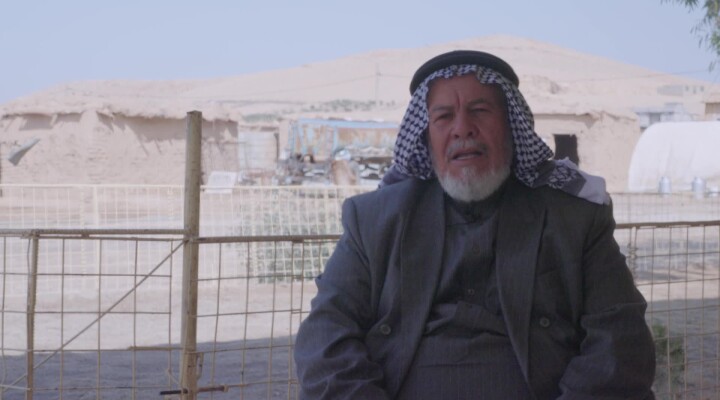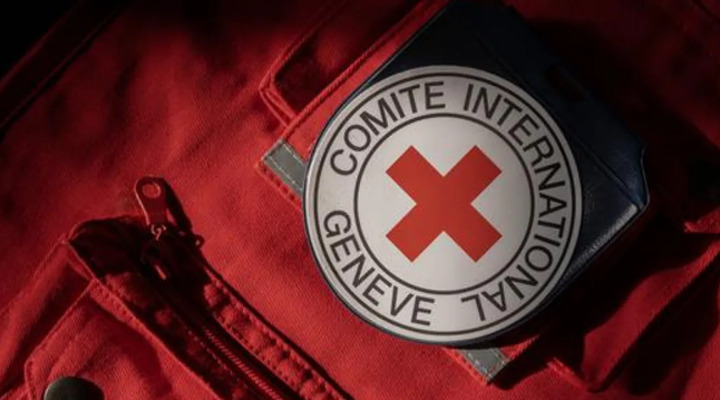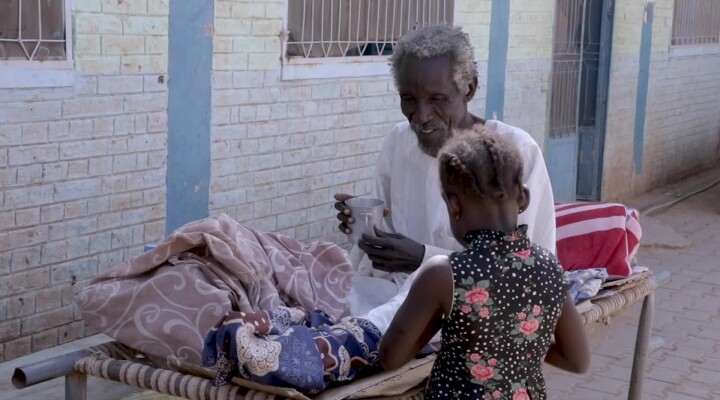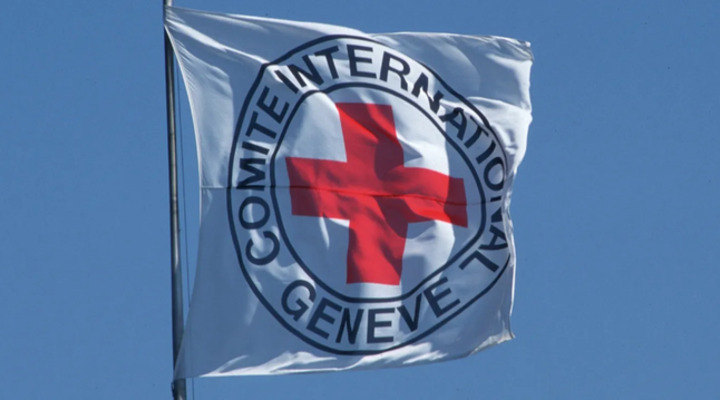Burkina Faso: in the grip of a triple crisis – armed conflict, COVID-19 and floods
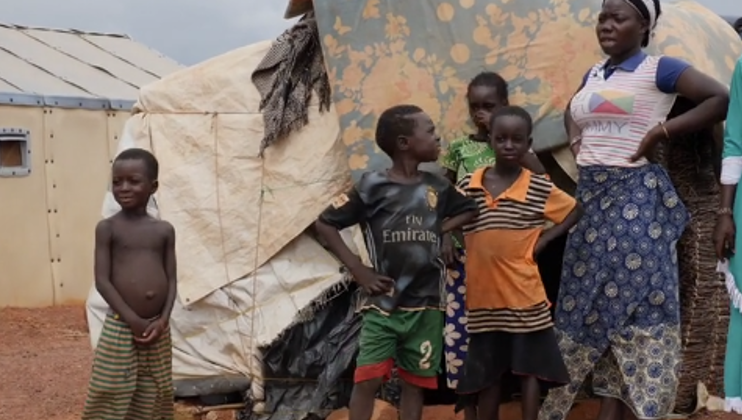
This is a modal window.
While COVID-19 dominates the headlines in most parts of the world, there has been no let-up in the armed conflicts in the Sahel. In fact, there has been a rise in incidents of armed violence, resulting in mass population displacement. In Burkina Faso alone, the number of internally displaced people has now topped the one million mark, doubling the figure recorded in July 2019.
The city of Kaya, which lies a hundred kilometres north-east of Ouagadougou, illustrates the extent to which the humanitarian situation has deteriorated. And to complicate matters further, ten days ago, heavy rain caused floods in the area.
This part of Burkina Faso is one of the areas currently in the grip of armed conflict. Rising insecurity has led to the displacement of large numbers of people seeking safety in towns and cities. In Kaya, the main city in the Centre-North region, the local population of 130,000 has been swelled by the arrival of 100,000 displaced people, who are living in four temporary camps, some in makeshift shelters.
Fati Soré is from Pensa, a village located some 90 kilometres away. “Before, we farmed our land and raised our livestock. We made a living,” she explains. “We fled after the attacks on our village. The people who came after us were armed. They shot at us, and shot at us, and shot at us. That’s why we had to leave. Sadly, not all of us made it.”
She would have met a very different fate had it not been for the generosity of the local people. “Thank God the people of Kaya welcomed us with open arms, with dignity,” she concludes.
Growing insecurity has caused five health centres in the Kaya area to close their doors in the midst of the COVID-19 pandemic which has left the health system in disarray. In response to this situation, the International Committee of the Red Cross (ICRC), in collaboration with the health authorities, decided to bolster the capacity of a health centre that was still open, restoring its facilities and providing medicines, beds, a tricycle ambulance and training for health-care workers. As a result, between April and July, the ICRC supported the delivery of care to over 20,000 people.
Health needs are now so great that the Kaya health facility is providing care to eight times the usual number of patients. Some of the people working there have been drafted in from elsewhere.
A number of nurses and doctors who were forced to leave their facilities in areas affected by violence are now working at this health centre. There is a constant stream of patients, and most of them come from far away. Over 80 per cent of the patients are displaced people.
Burkina Faso has also been hit by heavy rain, which has affected over 7,000 people, according to the authorities. Kaya was not spared, with 1,440 people, including 880 internally displaced people, suffering the effects. Three displaced people lost their lives, two of them when houses collapsed onto their shelters. On Sunday, the Burkinabe Red Cross Society distributed essential household items to over 700 people.
“The political and security crisis continues to unfold. The armed conflict between different groups continues to rage. There are visible signs of climate change at practically every turn in this environment. You can also see how the structural poverty that has long plagued the people of the Sahel compounds these problems. And then there is COVID-19 which has perhaps hit the region as an economic crisis rather than a health crisis. These problems collide, producing a huge fallout and sparking a humanitarian crisis of the highest order,” remarks ICRC President Peter Maurer, who has just completed a five-day visit to Niger and Burkina Faso.
In view of these needs, the ICRC recently allocated close to 8 billion CFA francs (12 million Swiss francs) on top of its operational budget for the Sahel region. These extra funds will be used to strengthen protection for civilians, provide essential services and assist communities in rebuilding their livelihoods.
For more information, please contact our spokespeople:
Dakar : Jean-Yves Clémenzo jclemenzo@icrc.org
Tel: +221 78 639 86 29
Ouagadougou: Emeline Oboulbiga Epouse Yameogo poboulbigaepouseyame@icrc.org
Tel: + 226 70 75 64 94
Geneva: Florian Seriex fseriex@icrc.org
Tél. + 41 79 574 06 36
LOGLIST
Location: Kaya, Burkina Faso
Date: 12–13 September 2020
Length: 05:32
Camera operator: Birom Seck
Language: French and Moore
Copyright: Access all
00:00 General shots of a camp for internally displaced people in the immediate vicinity of Kaya.
00:06 Shots featuring the displaced woman
Interview with Fati Soré in Moore. She used to grow crops and raise livestock in her village, but the fighting there forced her to flee with fifteen children to Kaya and seek safety in the city.
00:15 “We fled after the attacks on our village.
00:23 The people who came after us were armed.
00:28 They shot at us and shot at us...
00:33 That’s why we fled. Sadly, not all of us made it.
00:36 Thank God the people of Kaya welcomed us with open arms, with dignity.
00:42 We cannot live without access to water.
00:46 We need water to drink and for washing.
00:50 Everything we do depends on the water we have.”
00:56 The displaced woman comes out of her tent with a water can in her hand.
01:01 She heads to the well with some other women.
01:09 The women draw water as well keeper Issiaka Ouedraogo watches on.
01:30 Issiaka Ouedraogo is going to visit the displaced people his son has taken in.
Interview with Issiaka Ouedraogo in Moore
An inhabitant of Kaya and father to 21 children, he has welcomed twenty or so displaced people into the home of one of his sons.
01:40 “We are from here. We have taken these displaced people in and helped them settle here.
01:50 We share everything we have with them.
01:56 When the displaced people arrived, there wasn’t enough woodland. They had no choice but to cut down the trees that we had been saving.
02:09 We saw them do it, but we understood and didn’t make any trouble. Their presence does have an impact on the environment, but we don’t want there to be any bad feeling towards them.
02:22 We live in perfect harmony with our guests.
02:25 One of my houses was occupied by my boys. I told them to leave so that our guests could go and sleep there.”
02:36 Shots of the displaced people taken in by Issiaka Ouedraogo’s son.
Interview with Dr Boukari Sorgho, ICRC, in French
02:47 “One of the problems in Kaya is that there is not enough water even for the city’s own residents.
02:52 When internally displaced people put additional strain on the supply, that is a further issue.
02:58 Today, for displaced people and for communities, it is crucial to facilitate the work of community health workers and medical transportation services and ensure respect for all health-care facilities.”
03:09 Arrival of the tricycle ambulance.
03:17 The sign for the Kaya health centre.
03:21 A woman is taken out of the tricycle ambulance on a stretcher.
Interview with Dr Boukari Sorgho, ICRC, in French
03:25 This health centre was designed to deliver health care to around 20,000 people a year. That was the original expectation.
03:33 Today, with the armed conflict causing an influx of internally displaced people, this centre must now cater to the needs of between 150,000 and 200,000 people.”
03:45 Work at the health centre.
03:48 A patient lying in bed alone.
03:50 Another patient having his chest listened to.
04:03 Beds being unloaded and installed in the health centre by an ICRC team.
04:07 Various shots of the health centre with patients.
Interview with ICRC President Peter Maurer in French
04:22 “The political and security crisis continues to unfold. The armed conflict between different groups continues to rage.
04:29 There are visible signs of climate change at practically every turn in this environment.
04:38 You can also see how the structural poverty that has long plagued the people of the Sahel compounds these problems.
04:49 And then there is COVID-19 which has perhaps hit the region as an economic crisis rather than a health crisis.
04:58 These problems collide, producing a huge fallout and sparking a humanitarian crisis of the highest order. That is why this region is a top priority for the ICRC.”
05:13 General shots of Kaya.
05:32 End
